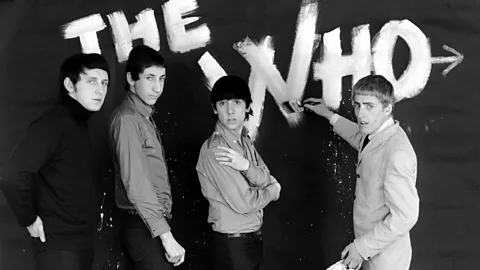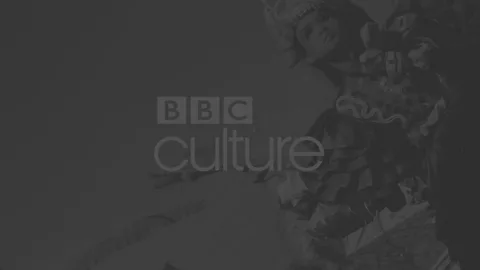What’s the song of your generation?
 Rex Features
Rex FeaturesIt’s 50 years since The Who’s My Generation became a pop anthem for disenfranchised youth. Greg Kot explains why some tunes come to define their era.
What turns a song into an anthem? Every decade or so, a tune lands like a brick through a window and delivers a message that in a few short minutes sums up a generation’s state of mind. If popular music is essentially the story of youth culture talking to itself, rock (and subsequently hip-hop) is the voice that roared. In the case of The Who’s My Generation, that voice went nuclear.
Pete Townshend was ticked off, and isn’t that where most youth anthems start? Townshend’s car – a hearse – had been towed by order of the Queen Mother, because she was sick of looking at it on her way to Buckingham Palace each day, apparently because it reminded her of her husband’s funeral. My Generation was The Who guitarist’s response, and the song owned the last few weeks of 1965.
‘Hope I die before I get old’
Forty years later, My Generation still sounds like one fed-up generation giving the V-sign to another. “Hope I die before I get old,” Townshend wrote in the first flush of anger at the condescending, set-in-their-ways, finger-wagging adults who were trying to limit his freedom and future. The kids who came of age watching The Beatles invade America were paying attention. My Generation became The Who’s biggest hit in the UK, peaking at number 2 in the pop charts and anchoring the quartet’s debut album, which was released on 3 Dec 1965.

The song nearly didn’t make it to vinyl. Townshend considered it a trifle in its earliest incarnation, a talking-blues modelled after Jimmy Reed. But as The Who’s manager Kit Lambert encouraged him to go bolder, Townshend built the song into a monster.
Its simple guitar riff gained weight as it passed through four ascending key changes. When the other instruments briefly subsided, John Entwistle made like Godzilla trampling London with a bass solo for the ages. Roger Daltrey stuttered the vocals like he was hopped up on pills, a punk spewing bile and coming tantalizingly close to blurting out the ‘f’ word. In a mere three minutes and eighteen seconds it was done, crashing down amid the cannon fire of Keith Moon’s drums and Townshend’s hailstorm of feedback.
The song remained a staple of The Who’s setlist ever since and punctuated their appearance on The Smothers Brothers Comedy Hour in 1967 – basically the band’s introduction to America. As My Generation ended in a cacophony of destruction, Moon set off explosives planted in his drum kit that sent shrapnel flying into his arm and singed Townshend’s hair.
The song had laid waste not just to a television show, but to expectations about what a rock song could say. Other songwriters of the era dived deep into protest song, but The Who’s defiance was a personal statement to which just about any kid with authority issues could relate. In the era when the term ‘generation gap’ was popularised, The Who supplied the soundtrack.
A few other songs have ascended to the status of a generational anthem in the decades since. Here are some of the best:
Say It Loud – I'm Black and I'm Proud, James Brown (1968): In the wake of Martin Luther King’s assassination, this statement of racial pride opened the door to the black power movement, and marked a shift in the civil-rights struggle. It became a slogan in classrooms and concert halls, and continues to live in countless hip-hop tracks that sampled it.

I’m Eighteen, Alice Cooper (1970): The shock rocker’s on-stage theatrics were in service to songs that spoke to anyone who has ever been trapped in the wasteland between adolescence and adulthood.

God Save the Queen, Sex Pistols (1976)
Like The Who, the Pistols took dead aim at the Powers That Be and sneered, “No future". Johnny Rotten’s wish to “destroy everything,” as he insisted in interviews, was as much a marketing ploy as a wickedly serious provocation, but the disenfranchised embraced it and the government tried to quash it.

The Message, Grandmaster Flash and the Furious Five (1982) “Don’t push me cause I’m close to the edge, I’m trying not to lose my head.” Rapper Melle Mel speaks for those trapped in the long, hot summer of President Reagan’s trickle-down economy.

Fight the Power, Public Enemy (1989)
The hit anchored Spike Lee’s pivotal movie about inner-city race relations, Do the Right Thing, and echoed Chuck D’s assertion that hip-hop had become “like headline news … the invisible TV station that black America never had.”

Smells Like Teen Spirit, Nirvana (1991)
Move over Baby Boomers, Kurt Cobain nails the Generation X moment and its scepticism, anxiety and ink-black humour, underlined by an irresistible guitar riff. “Here we are now, entertain us/I feel stupid and contagious.”

Crazy, Gnarls Barkley (2004)
In a decade when pop shattered into a thousand subcultures, the odd couple of Danger Mouse and Cee-Lo brought everyone together with an anthem that doubled as commentary on the state of the world.

Neighborhood #1, Arcade Fire (2004)
Just when the notion of a rock band rewiring the universe started to sound so 20th Century, this Montreal group went for broke on its debut album. “I’ll dig a tunnel from my window to yours,” they shouted, as if reaching out through a blizzard to those who’d been left behind.

Greg Kot is the music critic at the Chicago Tribune. His work can be found here
